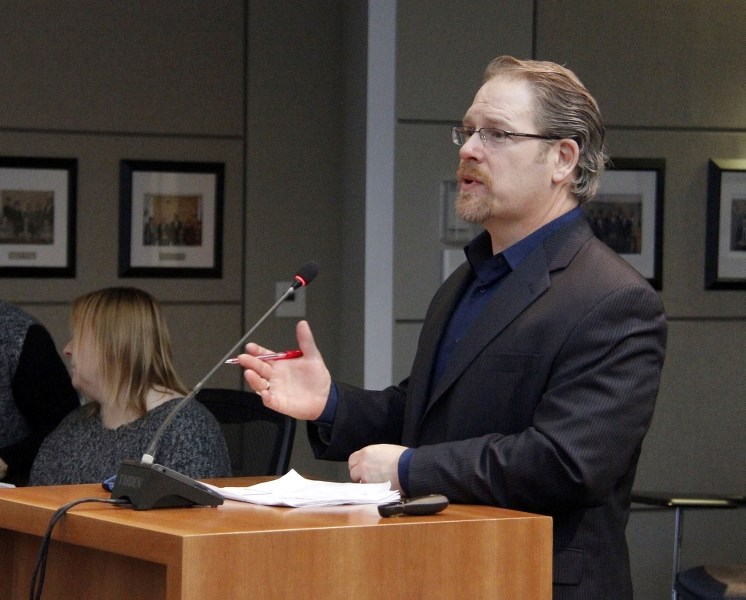Big changes are on the horizon for local municipalities, and Alberta Municipal Affairs is hoping to give them the tools they need to get the job done.
The Province of Alberta recently announced the integration of Inter-municipal Collaboration Frameworks (ICF) for all municipalities across the province.
Last week, representatives from the Inter-municipal Relations Team for Alberta Municipal Affairs met with local councils to discuss the ICF process, what to expect, and what it could mean to each municipality.
The ICF legislation comes into force April 1.
“The whole idea behind it was to ensure there's good inter-municipal collaboration, making sure it's done in a strategic way, and making sure that your services and land use planning align,” explained Michael Scheidl, manager for the Inter-municipal Relations Team.
He added, it's a good opportunity to get municipalities communicating with the assistance of a mediator, and has a success rate of nearly 90 per cent.
Municipalities involved will list all of the services they have within their community. Then, they determine which ones are vital or impact the other party involved in the ICF.
When it comes to agreements that have already been created between two or more municipalities, Scheidl said if they work, they can stay as is.
“It doesn't mean that you have to open up that agreement. If both municipalities are okay with that, then you don't have to do that. We've had some ask if the ICF means they have to renegotiate everything, but it doesn't.”
The ICF also requires the adoption of an Inter-municipal Development Plan with surrounding communities.
“It has to be done in two years, which will be April 1, 2020, and it has to be common-ground terms,” Scheidl expressed.
Municipalities will be required to create ICFs will all of their neighbours.
This means, any of the communities that are connected by land will have to have an ICF in-place by the deadline.
This doesn't include First Nations or Métis Settlements however.
“They're not included in this because this is another order of government. The province can't compel them to (be included),” explained Scheidl.
Under the legislation, there are a number key services that have to be discussed amongst municipalities.
Although these items must be considered in the ICF, it doesn't mean it must be provided by one municipality or the other.
For example, Scheidl said, there are municipalities that prefer to keep their water and wastewater services separate. This is outlined in their ICF agreement.
“The whole idea here is to just have that conversation,” he added.
When it comes to the services that benefit residents from each municipality, it's up to those sitting around the table to come up with a plan.
Scheidl said, the process could be fairly simple, especially if you already have agreements in place.
“It's formalizing a lot of what you're already doing.”
Even starting the discussion is a good thing, because it could mean the revitalization of an older agreement that hasn't been updated in years.
“I think this is a good opportunity to inventory. It also provides a good information tool to the public and other municipalities on what you're doing,” continued Scheidl.
April 1, 2020 will be marked in every municipalities' calendar as the deadline for all ICF agreements, at least the ones that can be agreed on.
“If you're not able to come to an agreement, there is mandatory arbitration,” Scheidl said.
The arbitrator would make a decision on the ICF the two parties are stuck on, whether it's a particular service, or clause within one of their contracts.
If two communities are struggling to come to an agreement even before the 2020 deadline, they can request an arbitrator step-in.
“If you agree to disagree and you need a decision on whatever it happens to be, you can go and do your own voluntary arbitration before that. That arbitration would then follow the Arbitration Act, which is a little bit different,” Scheidl explained. “We believe the best decisions are made by you, not by somebody else. However, the reason for arbitration is in case you don't agree on something.”
The deadline for an arbitrator's decision is April 2021.
A public engagement session is not required under the ICF legislation, however a municipality may have that obligation in-place under their own policies.
According to Scheidl, an arbitrator has different powers than a mediator, and is often selected by the two municipalities involved. However, if they can't come to an agreement, the Minister of Municipal Affairs will assign one.
The City of Cold Lake and MD of Bonnyville have jointly applied for provincial funding for this stage of the ICF process.
Once an arbitrator has been brought into the picture, they layout an agreement on behalf of the two municipalities. Anytime throughout this process, the two parties could come to an agreement, which would trump whatever the arbitrator decides.
In order to create an ICF, municipalities will be required to have an IDP in place.
“The linkages between and ICF and IDP, is to make sure your land use and servicing aligns and is linked,” explained Scheidl.
By working together, two communities can collaborate and decide the future of an area along their boundaries.
Scheidl said, “This is pretty unique for Canada to have mandatory municipal collaboration, and it's new to have arbitration between two municipalities.”



